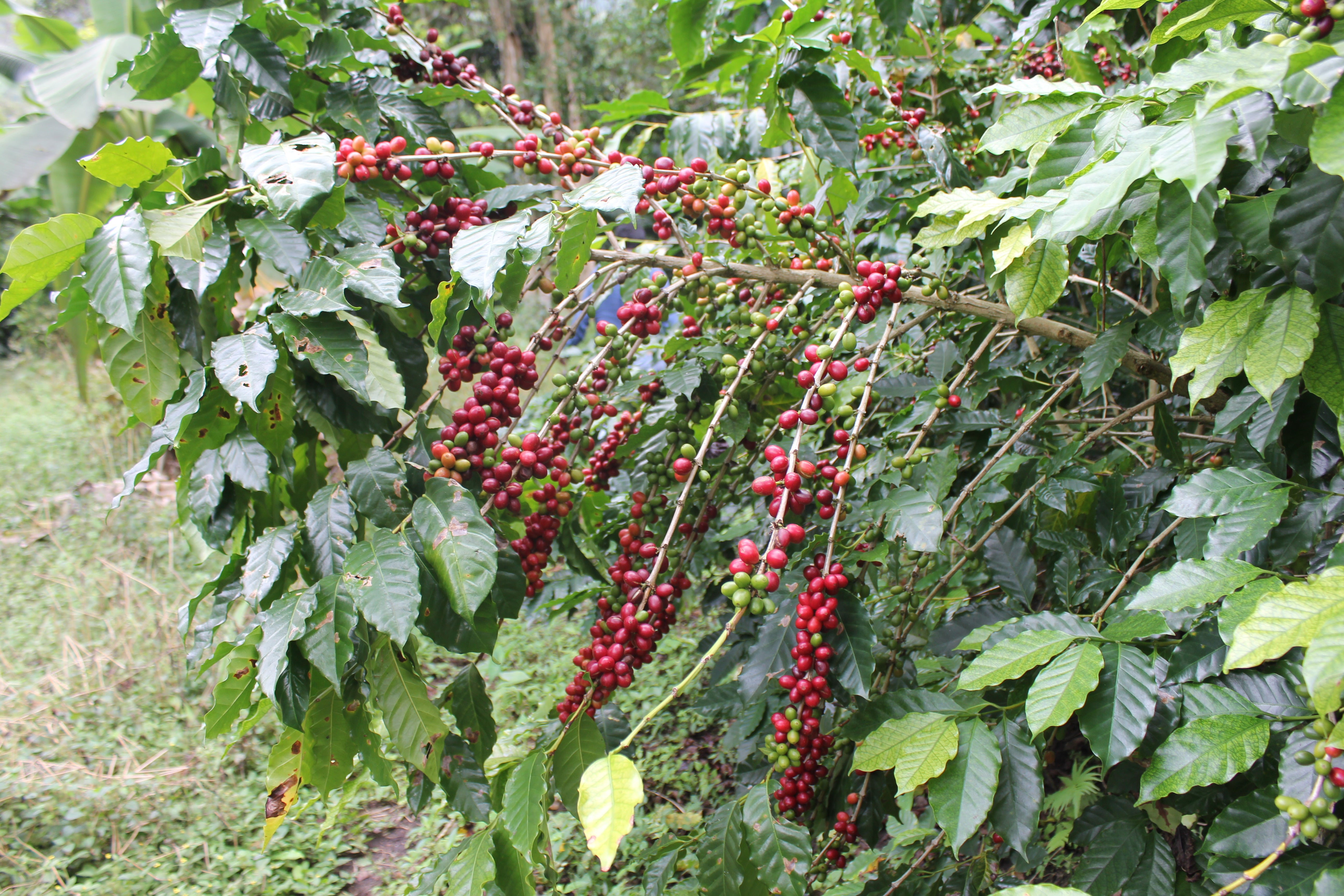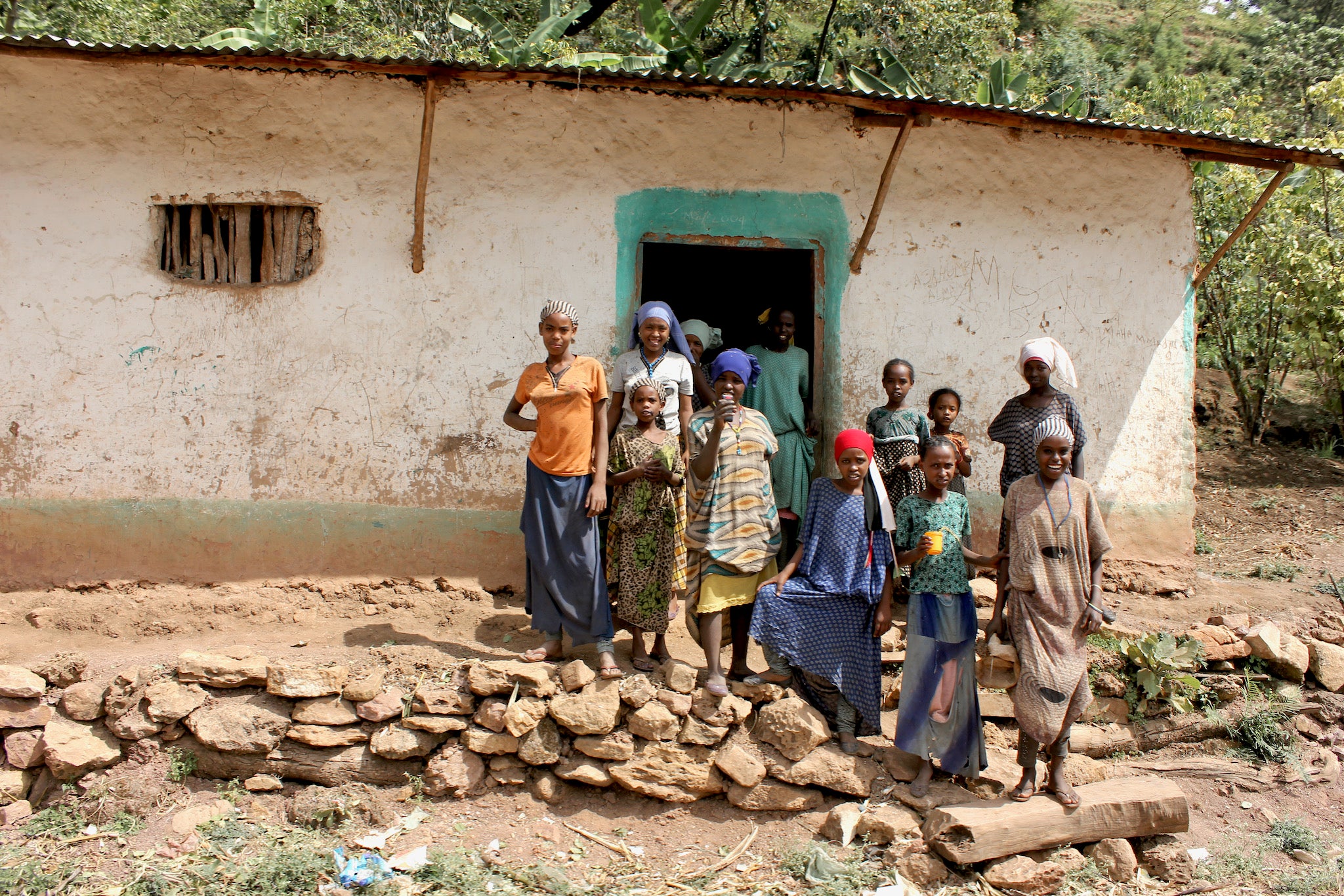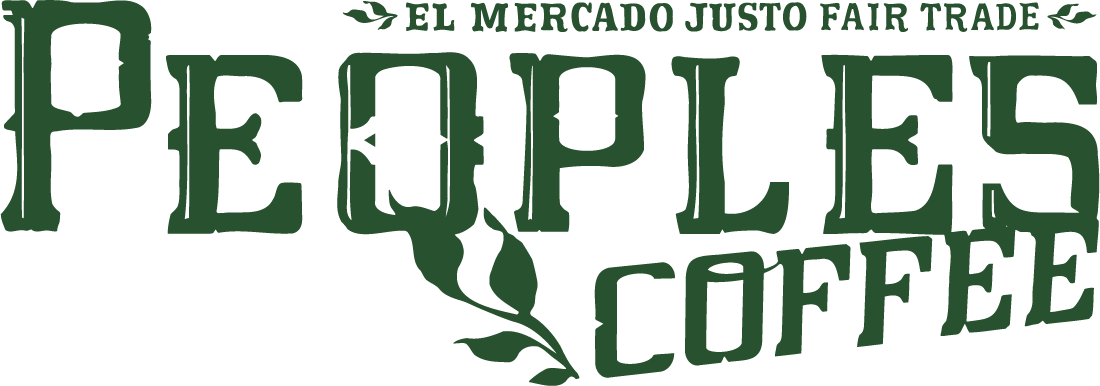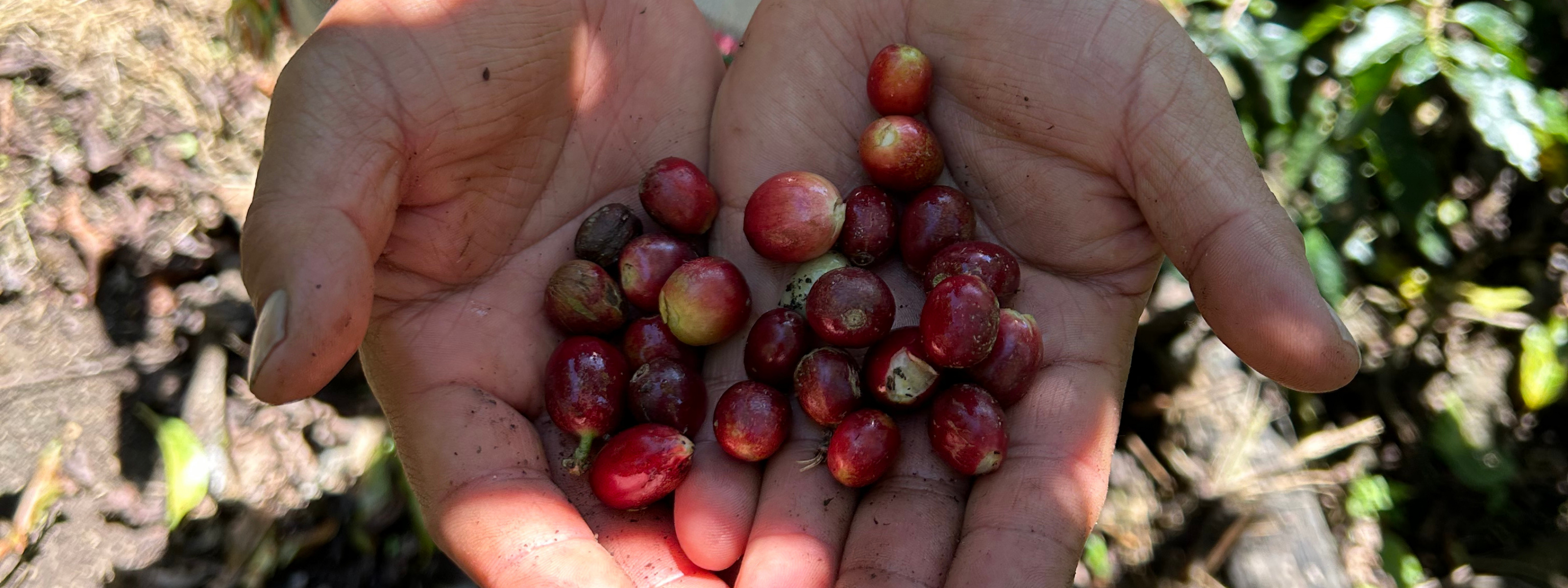Delicious Without Compromise
At Peoples Coffee, we believe in simplicity and quality without compromise. We exist to:
- Source coffee in the most ethical way possible
- Value people in all parts of our supply chain
- Minimise our impact on the environment
- Produce the highest quality coffee imaginable
Coffee is more than a beverage; it's a connection between people, nature, and communities. We believe that this interaction deserves a responsible approach, one that guarantees exceptional taste, environmental stewardship, and fairness to those who cultivate it.
To address pressing global challenges and support small-scale farmers, we exclusively source organic and fair trade coffee through long-standing cooperative partnerships. This guarantees that the exceptional quality in every cup reflects our commitment to ethical coffee both for the environment and farmer.

organic coffee
Organic coffee is a choice for the environment more than it is a health choice for drinkers. Small lot farmers who utilise organic coffee farming techniques ensure the sustainability of their environment for generations to come. But these techniques come at a cost and are very labour-intensive which is why an 'organic premium' is built into the prices we pay.

Fair trade coffee
Farmer cooperatives are the heart and soul of the Fair Trade coffee system as they provide the small lot farmer with access to the coffee market. Long-term partnerships coupled with social premiums built into the price we pay for coffee is the only lasting way to make a difference at origin, providing opportunities for farmer-initiated community development projects.
Deep Dive
There's more to the story
Coffee producers working with 1-2 hectares of land. They produce 80% of the world's coffee.
Much of the chemical fertilisers used in the world today are a product of fossil fuels (natural gas). Not only does this negatively impact the ecosystem and contribute to topsoil degradation, but it keeps us dependent on using non-renewable resources in the production of coffee.
Organic practices in coffee farming remove the need for chemical inputs like herbicides, pesticides, fungicides, and fertilisers and replace them with natural minerals and inputs created by responsible farming principles. We support conscious farmers who are using progressive organic practices which include permaculture principles. Organic coffee farming is about taking advantage of the natural processes already at play, like growing canopy trees and other mid-sized trees that will provide much-needed shade and shelter for fragile coffee trees. These canopy trees drop their leaves and provide much-needed natural compost for the forest floor, which in turn offers an excellent foundation for healthy growth. Small lot farmers producing organic coffee can be sure they are not responsible for causing harm to their surroundings by contaminating with chemical fertilisers the environment in which they grow coffee, their food and collect drinking water.
Growing organic coffee is costly and far more labour-intensive than non-organic. Fair Trade Organic (FTO) contracts ensure farmers are paid a 40c premium per pound for the organic coffee they produce (as of 1st August 2023).
A coffee contract refers to the sale of green coffee between an exporter and importer, including details such as payment of premiums and differentials, costs and ownership of expenses and the date of fixing currency exchange payment.
Farmer-run coffee cooperatives are the enabler and conduit that allow producers with small lots of land (and limited resources) to come together and access shared infrastructure, processing equipment, and training to then be able to present their coffee to the market.
For any coffee to get to New Zealand, a farmer must sell, and a broker must buy, a whole container of coffee. Small lot farmers, who might only produce 50 sacks a year (less than a ¼ of a container) are unable to access the international export market directly.
This issue is resolved when coffee producers of similar regions and affiliations join together to form a co-op. By pooling their resources, they can access the market with an export licence, and through mutual profits, can buy and collectively own coffee infrastructure.
Working within the coffee cooperative structure also helps us trace the source of our coffee beans ensuring a fair price is paid to farmers.
An additional ‘Social Premium’ of 30c per pound on top of the minimum price is built into the price we pay for coffee. This is used by the coffee cooperative for farmer-initiated community development projects.
Multi-origin coffee blends allow us to craft a balanced palate by bringing together distinct coffee flavours from different regions.
It also allows us to support smaller fair trade coffee cooperatives as well as a wider range of cooperatives. This allows us to distribute our own economic resources more strategically.
The best and lasting way to make a difference at coffee origin and in a community's life is through long-term trade partnerships. For this reason, we've continued to support coffee cooperatives that champion the cause of the small-lot farmer by upholding the values of fair trade coffee year after year.
A minimum price is guaranteed, ensuring farmer viability in times of low prices on the commodity market. However, the prices we pay to farmers are set through discussions with the coffee cooperative to find a price that is reflective of the year they have had, the quality, and where the current NZ pricing market is at. These prices are set to be favourable to producers, but still competitive with other coffee in New Zealand. On top of this, a payment of up to 60% of the contract price is advanced to the cooperative before the coffee is shipped to help producers continue to operate.
With our partners Trade-Aid Imports, we have been travelling to meet with coffee cooperatives every year since 2004, with the exception of 2020-2022 due to international travel restrictions.
Though no system of trade is perfect, we have seen first-hand how fair trade coffee systems can benefit farmers and their communities.

